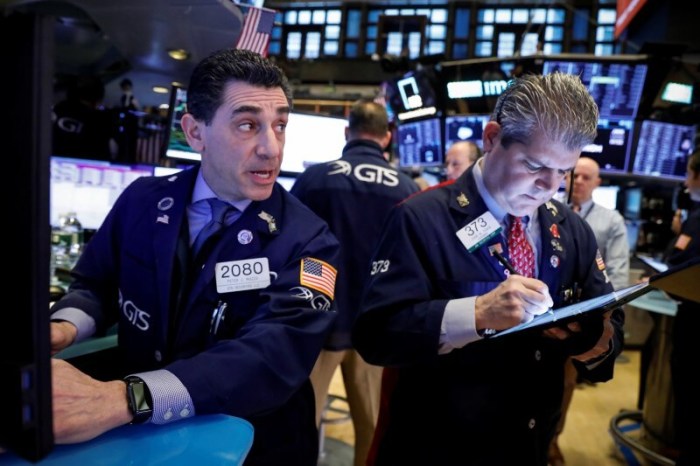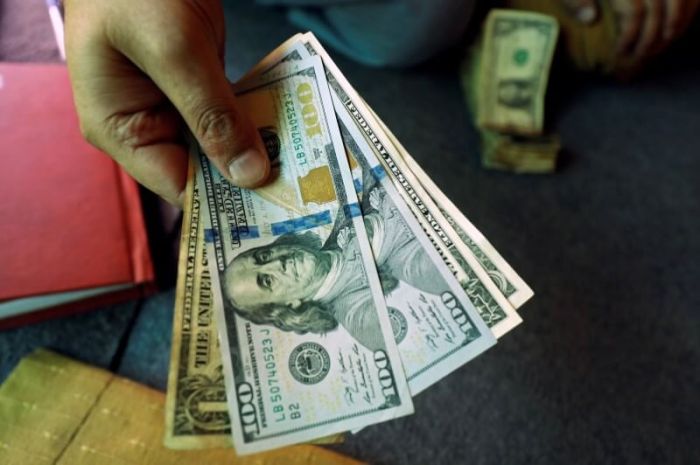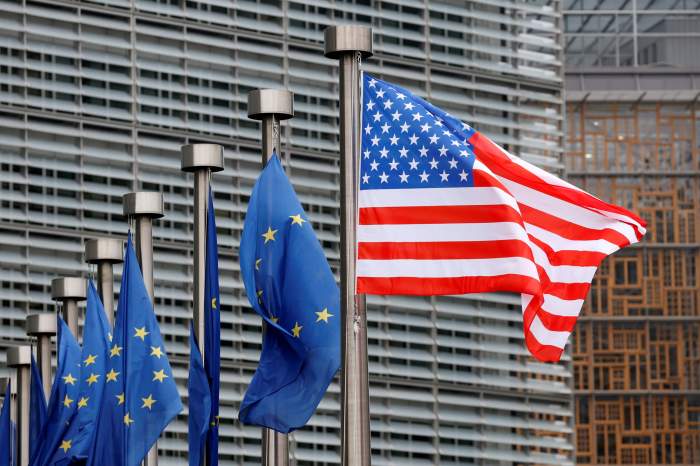By Saqib Iqbal Ahmed
(Reuters) – Investors are scrambling to adjust their portfolios to a surge of volatility in foreign exchange markets, as the coronavirus outbreak and massive swings in oil prices roil currencies around the globe.
Some of the recent moves in currencies have been among the most dramatic since the financial crisis. The Japanese yen notched a 5% price rise against the dollar between last Thursday and Monday, its largest three-day rally since 2008. Meanwhile, the Mexican peso and the Russian ruble are off 13% and 16% from their highs of the year, highlighting how the tumble in oil has hit emerging market currencies.
The Deutsche Bank FX Volatility Index <.DBCVIX> stood at 9.72 late on Wednesday after hitting a three-year high of 10.18 earlier in the week. Its rise follows a record low of 4.9 reached just a month ago, reflecting an upsurge of volatility that took most investors by surprise.
“The coronavirus and the oil price war (between Russia and Saudi Arabia) were both exogenous shocks – neither were in market pricing … prior to occurring,” said Simon Harvey, a London-based market analyst at Monex Europe.
(GRAPHIC: Deutsche Bank Currency Volatility Index – https://fingfx.thomsonreuters.com/gfx/mkt/13/3170/3135/Pasted%20Image.jpg)
Some welcomed the turbulence, which comes after a long period of sleepy trading in foreign exchange markets that had smoothed out the price swings investors need to make money.
“You are seeing stronger, more consistent trends in the currency market,” said Kathy Lien, managing director of currency strategy at BK Asset Management. “We’ve been trading actively.”
Lien has been selling the U.S. and Australian dollars, betting that these currencies will underperform the Japanese yen because the United States and Japan are delivering less stimulus to their economies than some investors expected.
Momtchil Pojarliev, head of currencies at BNP Asset Management, earlier this year used options on the yen to bet on a rise in volatility, which was low by historical standards in January.
“That was a good decision,” he said. “This is a great environment for us. We are saying, ‘FX is back,'” Pojarliev said.
The yen – a popular destination for nervous investors – is up about 7% from its lows against the dollar this year.
Elevated price swings have also hurt traders who had been wrongly positioned or taken on too much risk.
Shares in the French bank Natixis SA
The elevated volatility has also upended bets on emerging market currencies, where some investors seek to collect yields through a strategy called a carry trade, which tends to prosper when markets are placid.
The MSCI EM Currencies Index <.MIEM00000CUS> is off 3.7% from its January highs.
The rapid decline in the dollar “strangled” investors who had piled into the currency in recent months looking to take advantage of comparatively high U.S. yields, said Ugo Lancioni, head of global currency at Neuberger Berman.
The U.S. dollar index <=USD> is off about 3.4% from a nearly three-year high hit in late February as market participants rushed to price in plunging Treasury yields and expectations of more rate cuts from the Federal Reserve.
As a result, “the U.S. dollar has failed to provide the risk-off protection that it has provided in the past” in the recent sell-off, Lancioni said.
The euro, meanwhile, has rallied from multiyear lows and moved in opposition to U.S. stock markets in recent weeks, squeezing investors out of bets that the currency would continue to decline.
Net bets on a weaker euro in the futures market stood at about 86,000 contracts, after rising to a more than three-year high of 114,000 contracts in late February, data from the Commodity Futures Trading Commission (CFTC) showed.
(Reporting by Saqib Iqbal Ahmed; Editing by Ira Iosebashvili and Rosalba O’Brien)
























